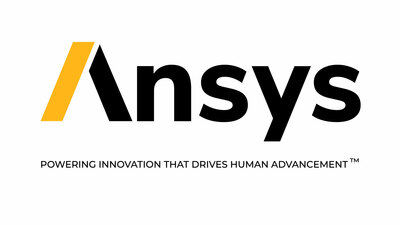Ansys to Drive Major Advances in AI-Powered Semiconductor Design Using NVIDIA AI
Integration of NVIDIA Modulus AI framework with the Ansys SeaScape platform will enable engineers to easily build customized AI solutions that can improve designer productivity and quickly identify optimal design configurations
-
NVIDIA Modulus artificial intelligence (AI) framework will be integrated into the Ansys SeaScape™ cloud-optimized big data analytics platform for electronic design automation, which has demonstrated a speed-up of thermal simulation by over 100x
-
The Modulus physics-informed AI techniques strongly complement Ansys multiphysics simulation engines within SeaScape, including Ansys power integrity and reliability signoff platforms Ansys RedHawk-SC™, Ansys Totem-SC, Ansys PathFinder-SC™, and Ansys RedHawk-SC Electrothermal™
-
The integration will improve product outcomes for applications including graphics processing units (GPUs), high-performance computing (HPC) chips, AI chips, smartphone processors, and advanced analog integrated circuits
Ansys today announced it is integrating the NVIDIA Modulus AI framework into Ansys semiconductor simulation products to deliver AI functionality that significantly speeds up design optimization. This will enable engineers to create customized and generative AI surrogate models that accelerate design iterations and explore a larger design space. The technology integration will enhance the outcome for a wide range of products, including GPUs, HPC chips, AI chips, smartphone processors, and advanced analog integrated circuits.
NVIDIA Modulus is a physics-AI framework to train and deploy models that combine physics-based domain knowledge with simulation data, allowing users to create customized AI engines tailored to their needs. As AI gets integrated into computer-aided engineering workflows, it is important for users to have a seamless and integrated pipeline that allows data generated by solvers to flow to AI frameworks used to train models. Integrating NVIDIA Modulus framework into the Ansys SeaScape platform will enable customers to use high-fidelity data generated by Ansys tools to train their AI engines and then use the newly created engine for more robust design exploration.
For example, designers can train their AI models in the integrated Modulus framework using their library of completed designs in Ansys RedHawk-SC. Once the AI is trained, it can be used to identify optimal designs based on desired specifications — such as size, power, and performance — in a fraction of the time. Ansys plans to add Modulus-created AI accelerators to its semiconductor solutions including RedHawk-SC, Totem-SC, PathFinder-SC, and RedHawk-SC Electrothermal for faster thermal simulation and easier power calculation. With this AI-enhanced process, Ansys and NVIDIA have demonstrated over 100x speed-up for thermal simulations.
“NVIDIA has been collaborating closely with Ansys as both a partner and a customer for many years,” said John Lee, vice president and general manager of the semiconductor, electronics, and optics business unit at Ansys. “Ansys’ advancements in semiconductor design solutions have been fueled and enabled by NVIDIA’s powerful chips, and the collaboration continues to bring state-of-the-art EDA tools to our mutual customers.”
Also Read: AI helps Data Engineers be Distinguished Data Engineers
“NVIDIA Modulus makes it easy to train and deploy AI models that are physics-informed and reflect real-world causality,” said Tim Costa, senior director of CAE, EDA & quantum and HPC at NVIDIA. “The integration with Ansys simulation products for multiphysics semiconductor design are ideal applications for Modulus to enhance simulation speed and efficiently identify the best design solutions.”
[To share your insights with us as part of editorial or sponsored content, please write to psen@itechseries.com]


Comments are closed.